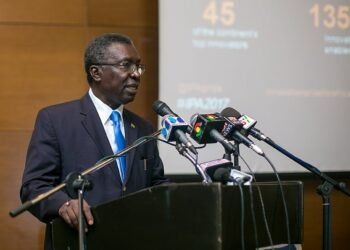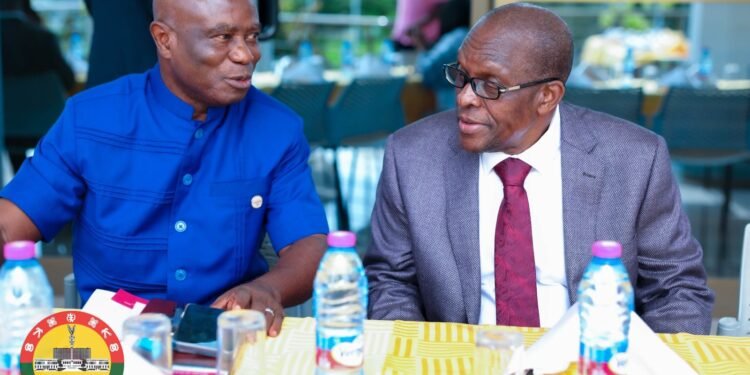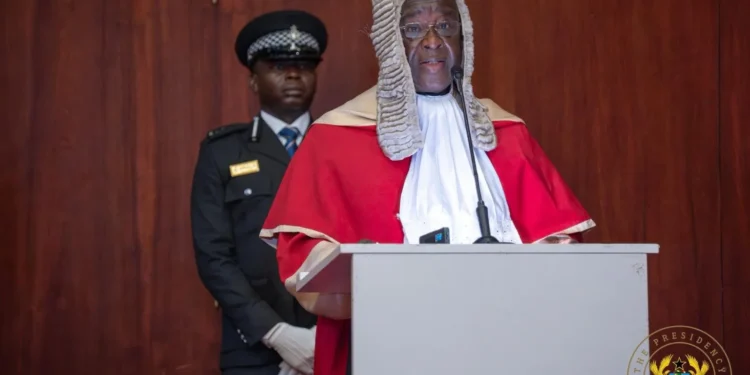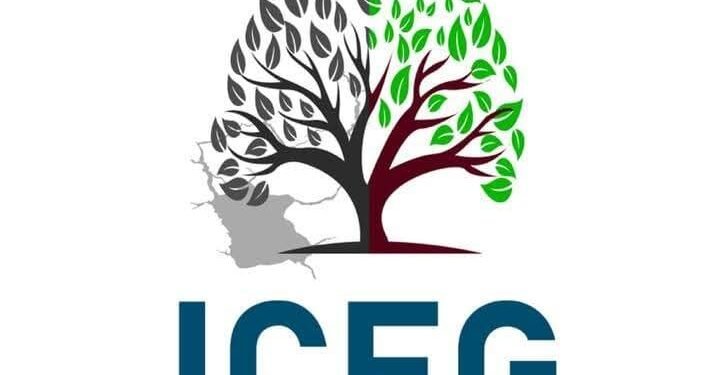Group Chairman of Tobinco Pharmaceuticals, Mr. Nana Amo Tobbin, has disclosed that indigenous pharmaceutical manufacturers are ready to produce the COVID-19 vaccines.
According to Mr. Tobbin, he indicated that, the success of this will be dependent on government’s support towards local production.
His comments follow the selection of Ghana as a manufacturing hub for vaccines in Africa by the European Union.
“With the manufacturing of vaccines in Ghana, with the support of Government, it is possible. Unless the government, our dear President Akufo-Addo supports the local industry it won’t be possible… We have all the things in place to do that”.
Additionally, Mr Tobbin further called on Parliament to issue a legislative instrument that will ban the importation of malaria drugs. This, he explained, is to help promote locally produced malaria products.
“We are asking them to ban the importation of it. It means that we are telling them to give the malaria products to the local industry.”
Earlier this month, the Greater Accra Regional Minister, Henry Quartey expressed his optimism over the prospect of local production of vaccines by manufacturers.
“It is my fervent hope that the Tobinco group and this factory will be ready for the opportunity for manufacturing know-how. Cooperation from tried and tested Covid-19 producers will be fully shared to enable you produce the vaccines locally”.
Ghana, manufacturing hub for vaccines
In May this year, Ghana was selected as the manufacturing hub for COVID-19 vaccines in Africa. The country was also excluded from the European Union’s list of money laundering nations.
This follows the two-day working visit by the President Akufo-Addo, to Brussels, Belgium, from the 19th to 20th May. There, the Vice President of the European Commission, Valdis Dombrovskis, indicated the selection of Ghana as a possible manufacturing hub for COVID-19 vaccines in Africa.
This, according to the Commission, follows the initiatives already taken by the Government of President Akufo-Addo towards the domestic manufacturing of vaccines.
The Commission revealed that, the taskforce teams from the EU and Ghana will meet to discuss modalities towards the realization of this initiative. He further explained that it could be supported by the European Investment Bank.
Delays with vaccines
Meanwhile, the Ghana Health Service has encountered some teething challenges with delay over vaccine administration.
The delay, according to the Director General of GHS, Dr. Patrick Kuma-Aboagye is in relation to administering the second dose of the AstraZeneca vaccines.
Earlier, the Director-General had revealed that some 360,000 people in the Greater Accra, Ashanti and Central regions were targeted to receive the second dose.
According to him, plans were underway to have more vaccines for people who were yet to receive their first jabs. He further stressed that the second consignment was especially for those who had received their first jabs.
Also, Dr. Kuma-Aboagye explained that people who take the second jab of the Oxford AstraZeneca COVID-19 vaccine, will still have to wear face masks.
According to him, there was still the possibility of contracting the virus after taking the second jab, hence the need for people to continue to adhere to the safety protocols.
“Until a significant number of the population are vaccinated, so that the chance of multiplying the virus within you and transmitting to someone who is vulnerable is cut, all have to continue wearing our masks, even if you are fully vaccinated”.
Read Also: Government spends 50.1% of total revenue generated in Q1 2021 on wages and salaries























